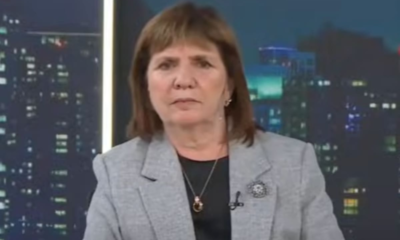INTERNACIONAL
Los precios japoneses registraron su mayor subida en dos años a días de unas elecciones clave

El índice clave de inflación al consumidor en Japón aceleró más de lo previsto y alcanzó un nuevo máximo de dos años, en un momento en que el primer ministro Shigeru Ishiba se prepara para unas elecciones de verano y el Banco de Japón evalúa la trayectoria de los precios en el país.
El Ministerio de Asuntos Internos de Japón informó el viernes que los precios al consumidor, excluyendo alimentos frescos, aumentaron un 3,7% en mayo respecto al año anterior, lo que representa la tercera aceleración mensual consecutiva. Este ritmo es el más rápido desde enero de 2023 y supera la estimación mediana de los economistas encuestados por Bloomberg, que preveían un 3,6%. El dato refuerza la percepción de que la inflación se ha convertido en un tema central para la economía japonesa y para el debate político de cara a los próximos comicios.
El principal motor de este repunte inflacionario ha sido el encarecimiento de los alimentos, con un impacto especialmente notorio en el precio del arroz, considerado el alimento básico nacional y un producto de alta sensibilidad política. El precio del arroz se disparó un 102% en comparación con el año anterior, una cifra que ha generado preocupación tanto en el gobierno como entre los consumidores. Además, los precios de los servicios, un indicador que el Banco de Japón sigue de cerca, subieron un 1,4% interanual, ligeramente por encima del 1,3% registrado en abril.
Este informe se publica en un contexto de debate intenso entre el gobierno minoritario de Ishiba y los partidos de la oposición sobre cómo aliviar el impacto del aumento del costo de vida. El encarecimiento de los productos básicos contribuyó a que el partido gobernante sufriera su mayor revés electoral desde 2009 en las elecciones del pasado otoño. La presión social por el alza de los precios ha obligado a los líderes políticos a buscar soluciones urgentes.
Taro Saito, jefe de investigación económica en NLI Research Institute, señaló que “la inflación en Japón es fuerte, impulsada por los costos de los alimentos; los precios del arroz están aumentando y esto afecta a otros productos relacionados”. Saito añadió que los datos publicados “dejarán pocas dudas de que la inflación será el tema clave en las elecciones del próximo mes”. La cita electoral para la Cámara Alta se espera para el 20 de julio, y en este contexto, Ishiba ha prometido transferencias directas de efectivo a los hogares, mientras que la oposición propone una reducción inédita del impuesto sobre las ventas en Japón.
El gobierno ha implementado una serie de medidas para contener el precio del arroz y así intentar frenar el descontento social, lo que ha contribuido a mejorar la popularidad del ejecutivo tras haber tocado un mínimo histórico en una encuesta de medios locales. Estas acciones buscan amortiguar el impacto de la inflación en los sectores más vulnerables y evitar que el malestar se traduzca en un castigo electoral.

El crecimiento sostenido de los precios también ha reforzado la postura del Banco de Japón respecto a un posible aumento de las tasas de interés, mientras la entidad espera mayor claridad sobre las medidas arancelarias de Estados Unidos y su efecto en la economía japonesa. En los últimos tiempos, la inflación en Japón ha sido la más alta entre los países del Grupo de los Siete y se ha mantenido en o por encima del objetivo del 2% del Banco de Japón durante más de tres años.
Horas después de la publicación del índice de precios al consumidor, el gobernador del Banco de Japón, Kazuo Ueda, intervino en una conferencia financiera en Tokio y sugirió que no hay cambios significativos en la perspectiva de la entidad sobre los precios. Ueda reiteró su opinión de que el efecto de los precios del arroz tenderá a disminuir, mientras que la inflación subyacente avanzará gradualmente hacia el objetivo de los responsables de la política monetaria.
El reciente aumento de los precios del petróleo, impulsado por la intensificación de las tensiones en Oriente Medio, podría añadir una nueva fuente de presión inflacionaria. El petróleo ha sido históricamente un factor determinante en la evolución de los precios en Japón, y las empresas han mostrado una mayor disposición a trasladar sus costos a los consumidores. A pesar de este entorno, el Banco de Japón ha mantenido los costos de endeudamiento en el 0,5%, el nivel más bajo entre las principales economías, adoptando una actitud cautelosa ante el cambio de un largo periodo de deflación. La entidad también ha argumentado que la tendencia subyacente de los precios sigue por debajo del 2%.
Bloomberg Economics analizó que “el dato más alto del IPC probablemente fortalecerá la confianza del Banco de Japón en que su objetivo del 2% se está consolidando. Creemos que las consideraciones sobre los precios pronto prevalecerán sobre las preocupaciones por el impacto de los aranceles estadounidenses en el crecimiento. Esperamos que el Banco de Japón eleve su tasa de política monetaria en 25 puntos básicos hasta el 0,75% en su reunión de julio”, según el economista Taro Kimura.

El impacto de la inflación se refleja también en el comportamiento de las grandes empresas alimentarias. Según Teikoku Databank, las principales compañías del sector aumentarán los precios de aproximadamente tres veces más productos en junio que en el mismo mes del año anterior. Lotte Co., un importante productor de confitería y helados, y Meiji Co., especializada en productos lácteos, anunciaron incrementos de precios este mes, atribuyéndolos al aumento de los costos.
El gobernador Ueda reiteró que seguirá de cerca el efecto de los precios del petróleo y de los alimentos en las expectativas de inflación, después de que el consejo del Banco de Japón mantuviera sin cambios la tasa de política monetaria a comienzos de semana. Ueda subrayó que no ve necesidad de apresurarse en un aumento de tasas, insistiendo en la importancia de observar datos concretos sobre el impacto de las medidas arancelarias de Estados Unidos.
El Banco de Japón ha manifestado que espera que las presiones al alza derivadas del aumento de los bienes importados y del precio del arroz se disipen en el futuro. Los responsables de la política monetaria aguardan que los indicadores subyacentes de inflación, como las expectativas de precios, avancen hacia el objetivo sostenible del 2%.

Saito, de NLI, opinó que “los datos de hoy no tendrán mucho impacto en la postura del Banco de Japón, ya que la entidad se centra en discernir el efecto de las medidas comerciales de Estados Unidos”. Añadió que, debido a factores técnicos y a las medidas gubernamentales, espera que el índice de precios al consumidor subyacente alcance su punto máximo en este momento y probablemente se sitúe por debajo del 3% de forma relativamente rápida, hacia julio o agosto.
El panorama inflacionario en Japón, marcado por el encarecimiento de productos básicos como el arroz y la energía, ha colocado a la economía y a la política del país en una encrucijada. Las decisiones que adopten el gobierno y el Banco de Japón en las próximas semanas serán determinantes para el rumbo de la economía y el bienestar de los ciudadanos.
(Con información de Bloomberg)
Asia / Pacific,TOKYO
INTERNACIONAL
Tailandia advirtió que los enfrentamientos armados con Camboya podrían derivar en una guerra “a gran escala”

Tailandia advirtió este viernes que los enfrentamientos armados con Camboya podrían escalar a una guerra a gran escala, en el segundo día consecutivo de hostilidades que ha dejado al menos 16 muertos y obligado a evacuar a más de 138.000 personas en ambos lados de la frontera.
“Si la situación se agrava podría derivar en una guerra, aunque por ahora sigue limitada a enfrentamientos”, declaró el primer ministro interino tailandés, Phumtham Wechayachai, ante la prensa en Bangkok.
La tensión se disparó el jueves debido a una disputa territorial de décadas entre los dos países del sudeste asiático, con combates que incluyeron el uso de tanques, aviones de combate, artillería y cohetes BM-21.
Se trata de la escalada militar más grave desde 2011 en una zona de 800 kilómetros de frontera, donde persisten áreas no delimitadas oficialmente, salpicadas de templos antiguos.
Según el Ministerio del Interior tailandés, las autoridades evacuaron a 138.000 civiles, incluidos 428 pacientes hospitalarios, desde cuatro provincias limítrofes con Camboya.
El balance oficial en Tailandia ascendió a 15 muertos —un soldado y 14 civiles— y 46 heridos. Por su parte, Camboya reportó un muerto y cinco heridos, en su primer informe oficial desde el inicio del conflicto.

Los enfrentamientos se reanudaron en la madrugada del viernes en tres puntos distintos, de acuerdo con el ejército tailandés. Según su versión, las fuerzas camboyanas lanzaron fuego con armas pesadas, artillería y cohetes múltiples, a lo que las tropas tailandesas respondieron con “fuego de apoyo apropiado”. El ejército agregó que los choques incluyeron seis zonas de combate el jueves, entre ellas dos antiguos templos.
En el municipio camboyano de Samraong, a 20 kilómetros de la frontera, periodistas de la agencia AFP registraron disparos lejanos de artillería durante la mañana. “Vivo muy cerca de la frontera. Tenemos miedo porque empezaron a disparar de nuevo sobre las 6 de la madrugada”, relató Pro Bak, un residente de 41 años que huía con su familia hacia un templo budista. “No sé cuándo podremos volver a casa”, añadió.
La crisis diplomática también se agravó. Tailandia expulsó al embajador camboyano y llamó a consultas a su representante en Phnom Penh, luego de que una mina terrestre hiriera a cinco soldados tailandeses. Camboya respondió retirando a todos sus diplomáticos en Bangkok, excepto uno, y degradando las relaciones al nivel más bajo.
El Consejo de Seguridad de la ONU se reunirá de urgencia y a puerta cerrada este viernes, tras una solicitud del primer ministro camboyano, Hun Manet.

En paralelo, Estados Unidos y Francia instaron al cese inmediato de las hostilidades, mientras que la Unión Europea y China expresaron una profunda preocupación y pidieron diálogo entre las partes.
Desde 2008 hasta 2011, los dos países ya libraron enfrentamientos en la zona, que dejaron 28 muertos y decenas de miles de desplazados. Una decisión de la Corte Internacional de Justicia en favor de Camboya calmó las tensiones durante una década. Sin embargo, la situación volvió a deteriorarse en mayo de este año, tras la muerte de un soldado camboyano en un nuevo choque fronterizo.
Los combates actuales reflejan la fragilidad de la paz en la región y han despertado la preocupación de la Asociación de Naciones del Sudeste Asiático (ASEAN).
El primer ministro de Malasia, Anwar Ibrahim, quien ocupa la presidencia rotativa del bloque, declaró haber hablado con sus homólogos de Camboya y Tailandia, a quienes pidió diálogo inmediato. Según dijo, ambos mostraron “señales positivas y predisposición” a buscar una salida pacífica.
(Con información de AFP)
Asia / Pacific,Defense,Diplomacy / Foreign Policy,SINGAPORE
INTERNACIONAL
Fox News Poll: The GOP is seen as more likely to have a clear plan for the country

NEWYou can now listen to Fox News articles!
With the 2026 midterm elections more than a year away, a new Fox News survey finds that while the Republican Party has lost some ground to the Democratic Party on handling key issues, voters are more likely to think the GOP has a clear plan for dealing with the country’s problems.
The survey, released Thursday, finds that by a 10-point margin, more voters think the Republicans have a clear plan for the U.S. than the Democrats: 43% vs. 33%. Still, majorities feel neither the GOP (54%) or the Democrats (64%) have a plan. This is about where sentiment was three years ago, the last time the question was asked.
FOX NEWS POLL: TRUMP FACING HEADWINDS AT SIX-MONTH MARK
Far more Republicans (79%) than Democrats (51%) are confident their party has a clear plan, and that’s what hurts the Democrats. While at least two-thirds of independents feel neither party has a plan, more trust the GOP (30% vs. 25%).
At the same time, the survey shows some significant erosion in the GOP’s handling of key issues compared to the last time Fox asked in 2023, including in areas where they are traditionally preferred.
Voters view the Republican Party as better able to handle national security (by 14 points), immigration (+6R), and government spending (+5R) while the Democratic Party is favored on climate change (by 23 points), health care (+19D), social security (+17D), education (+15D), and energy policies (+6D).
The parties are rated about equally on inflation (+1D), gun policy (even), the economy (+1R), and foreign policy (+3R).
Compared to 2023, support for the GOP is down on immigration by 4 points, national security by 6, government spending by 6, foreign policy by 9, and the economy by 14. Plus, the Republicans’ 12-point advantage on inflation has disappeared, as Democrats have a 1-point edge today.
While the Democrats have largely maintained support on their best issues, it’s noteworthy they saw a 12-point increase on education, as voters have been split on who would better handle the issue for the last few years.
FOX NEWS POLL: APPROVAL OF SCOTUS AT 5-YEAR HIGH, REBOUNDING FROM RECORD LOW IN 2024
These shifts can mostly be attributed to self-identified Democrats solidifying their preference for their own party’s handling of the issues, as well as independents lessening their support for Republicans or switching to Democrats.
Self-identified Republicans continue to express high levels of support for their party on the issues.
«Independents and even some Democrats had soured on President Biden and the Democratic Congress by 2023 and 2024, but they have shifted to the left a bit in 2025 in response to the policies of President Trump and the Republicans,» says Republican pollster Daron Shaw, who conducts the Fox News survey with Democrat Chris Anderson. «An appreciable part of this is performance related. Without obvious economic and foreign policy victories, independents and soft Democrats could drift to the left, which could scramble the electoral dynamic heading into 2026.»
Overall, views of both major political parties are underwater. By 2 points, the Republican Party has a slightly better favorable rating (44% favorable) than the Democratic Party (42%), but more than half view both parties negatively (56% and 57% unfavorable, respectively). That’s relatively unchanged since April.
Positive views of the Republican Party have shown steady growth since October 2019, while the Democratic Party has been on a downward trajectory, reaching a record low in April (41% favorable).
The Republican Party enjoys more support among their party faithful (83% have a favorable view) than the Democratic Party (78% favorable). Seven in 10 independents have a negative view of both.
CLICK HERE FOR CROSSTABS AND TOPLINE
Conducted July 18-21, 2025, under the direction of Beacon Research (D) and Shaw & Company Research (R), this Fox News survey includes interviews with a sample of 1,000 registered voters randomly selected from a national voter file. Respondents spoke with live interviewers on landlines (114) and cellphones (636) or completed the survey online after receiving a text (250). Results based on the full sample have a margin of sampling error of ±3 percentage points. Sampling error for results among subgroups is higher. In addition to sampling error, question wording and order can influence results. Weights are generally applied to age, race, education, and area variables to ensure the demographics of respondents are representative of the registered voter population. Sources for developing weight targets include the American Community Survey, Fox News Voter Analysis and voter file data.
INTERNACIONAL
«Fake news»: la Casa Blanca trata despegar a Donald Trump del caso Epstein y frenar la tormenta política

La ofensiva contra Barack Obama
Donald Trump,Jeffrey Epstein,Estados Unidos

 ECONOMIA3 días ago
ECONOMIA3 días agoEl consumo en Argentina crece 4% en junio, ante menor inflación y más crédito

 POLITICA1 día ago
POLITICA1 día agoMáximo Kirchner declaró una fortuna de 8.300 millones de pesos: representa un 76% más que el año anterior

 POLITICA2 días ago
POLITICA2 días agoLos organizadores de la Derecha Fest pasaron un video de Villarruel y algunos asistentes gritaron “traidora”




































